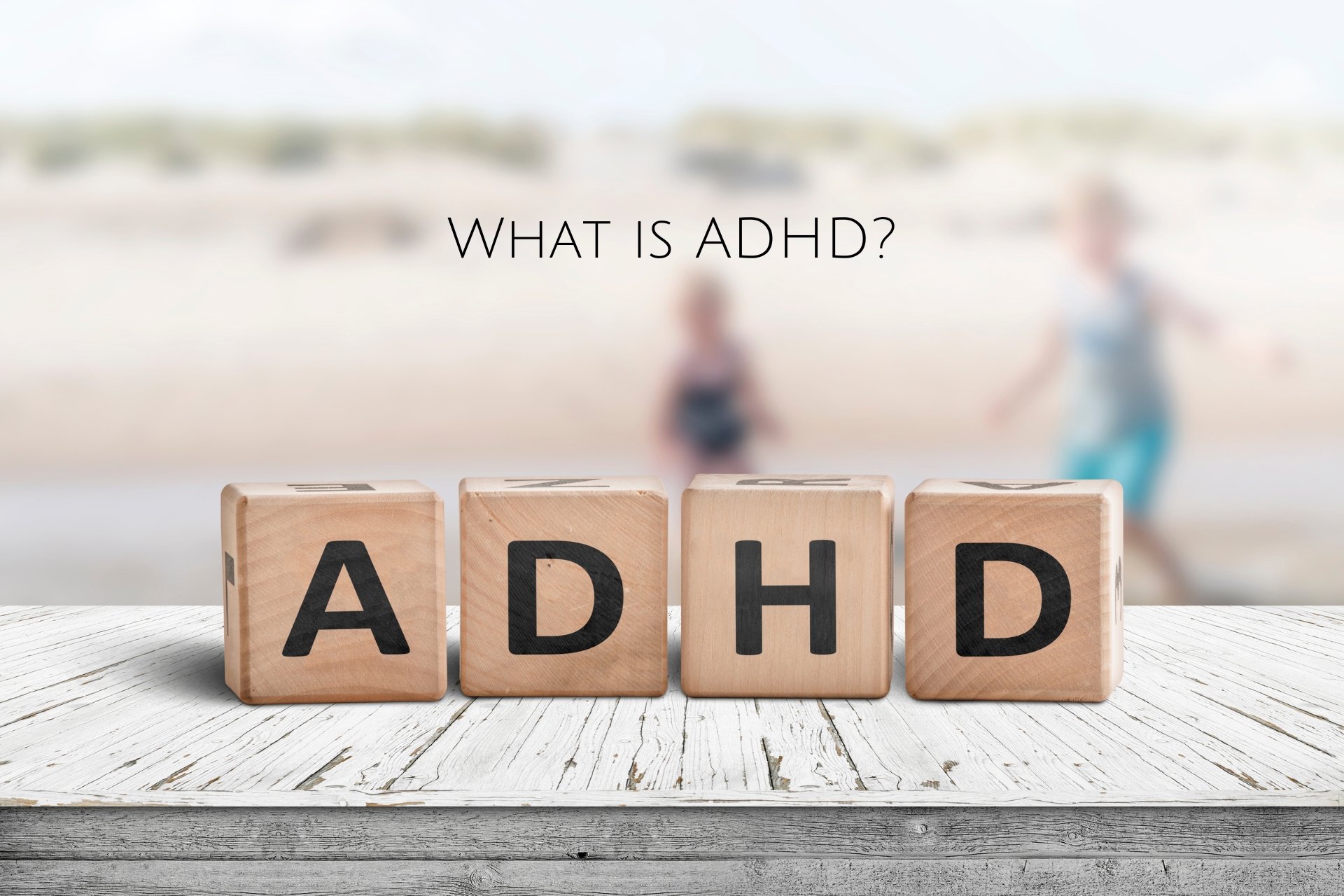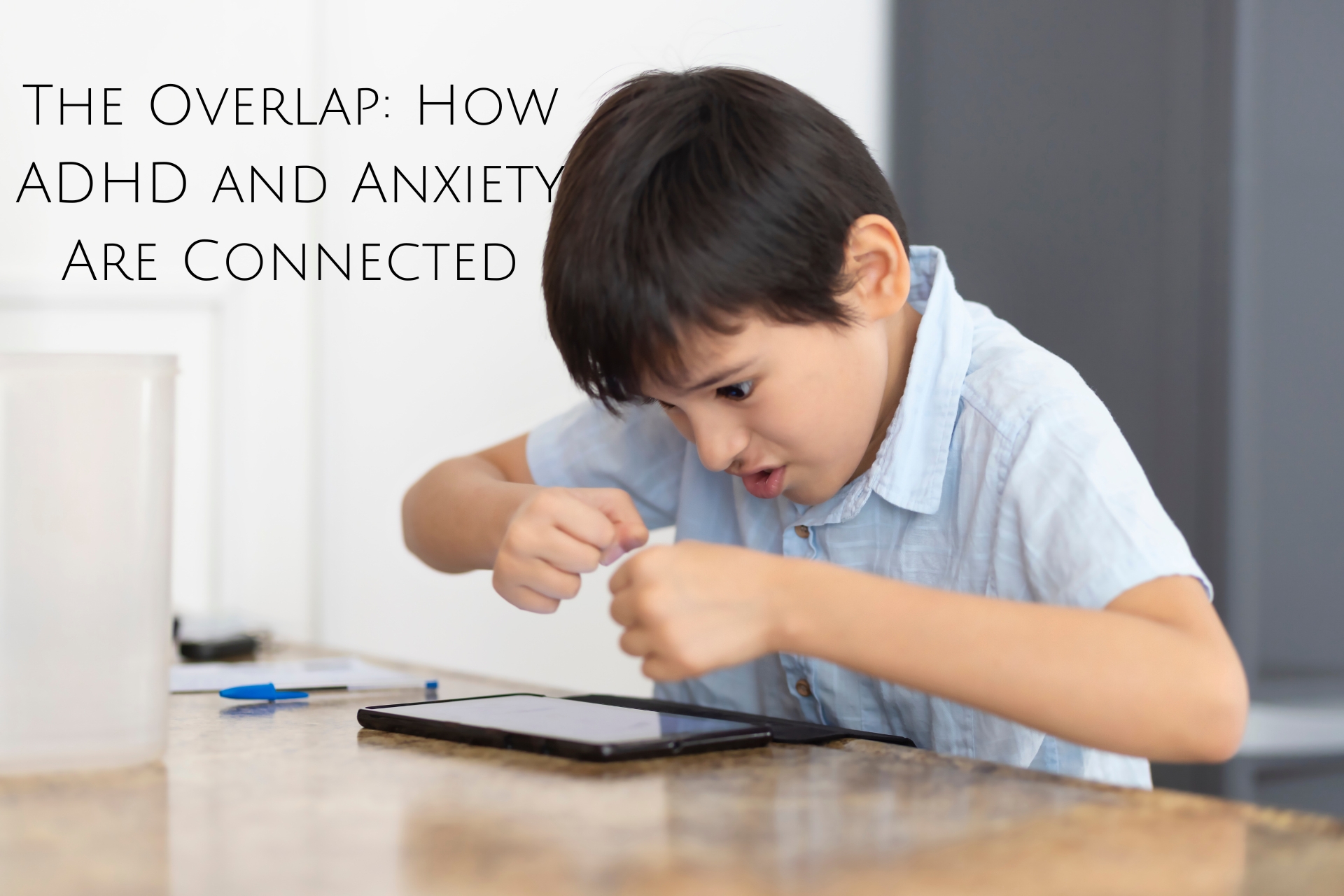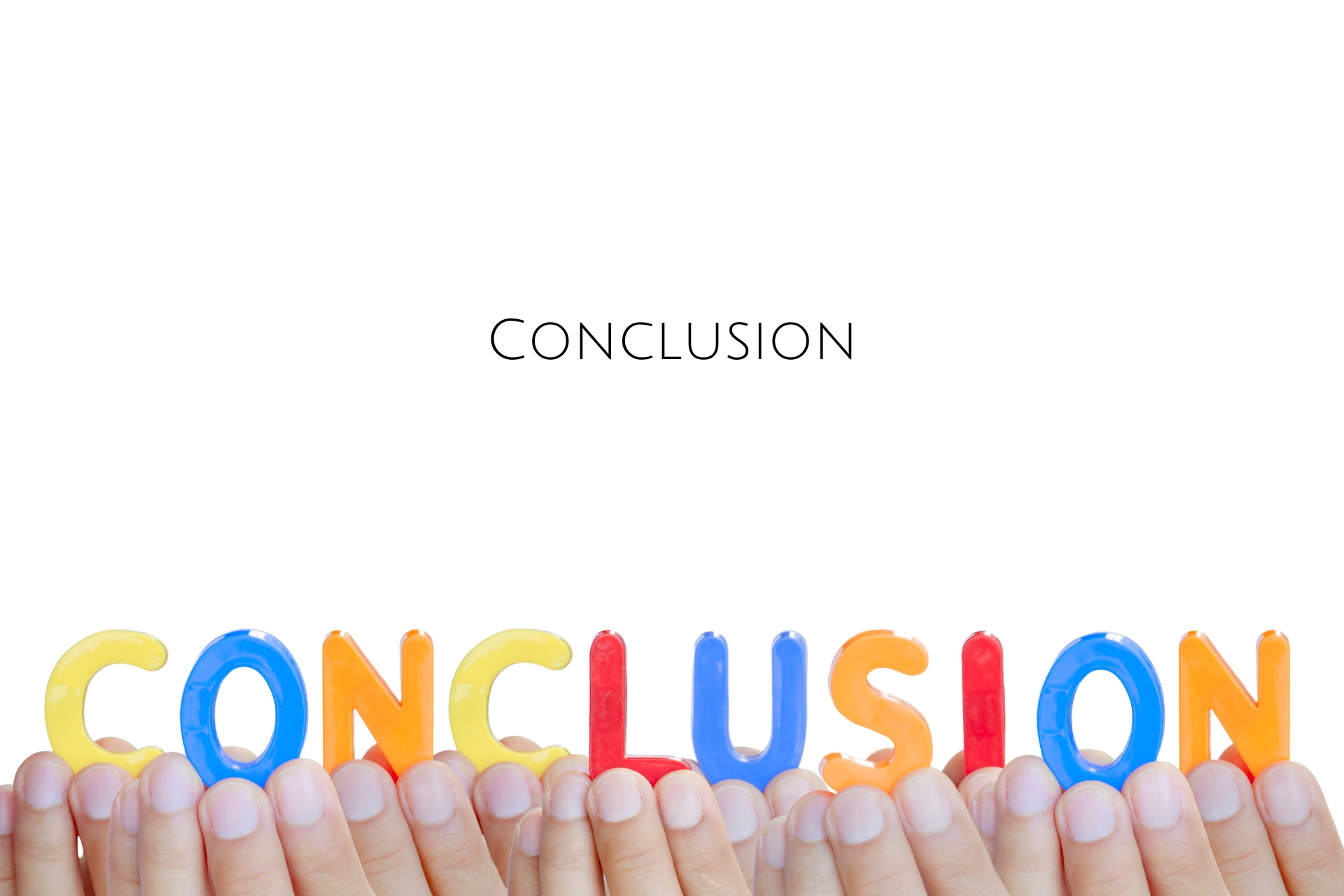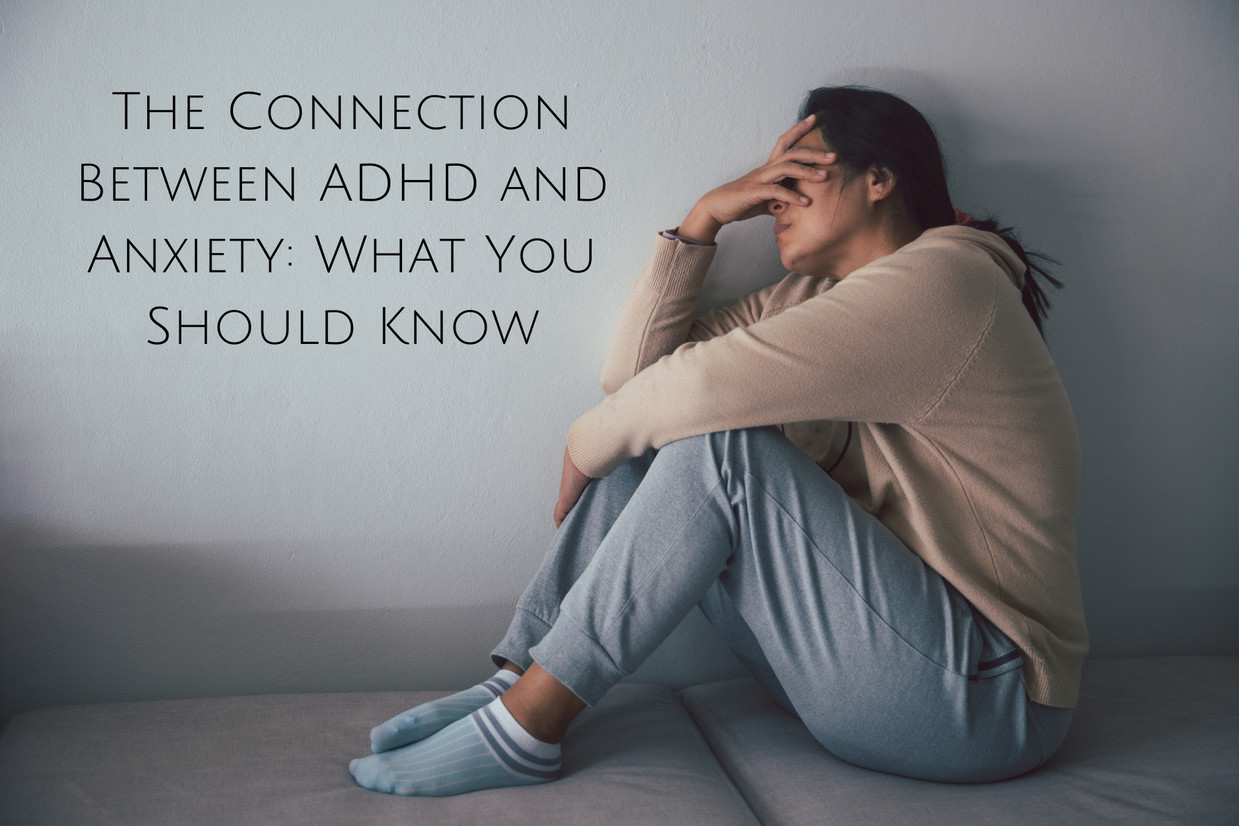The Connection Between ADHD and Anxiety: What You Should Know
Attention-deficit/hyperactivity disorder (ADHD) and anxiety are two common mental health conditions that often appear together, leading to a complex relationship that can complicate diagnosis and treatment. While they are distinct conditions, they share overlapping symptoms, and their interaction can exacerbate each other. Understanding how ADHD and anxiety are connected is essential for individuals who are navigating these challenges, as well as for healthcare providers who are working to develop effective treatment plans.
In this blog, we’ll explore the connection between ADHD and anxiety, how they influence each other, and what you can do to manage both conditions.
What is ADHD?

Attention-Deficit/Hyperactivity Disorder (ADHD) is a neurodevelopmental disorder that affects both children and adults. It is characterized by symptoms of inattention, hyperactivity, and impulsivity. Individuals with ADHD often experience difficulties in maintaining focus, staying organized, following through with tasks, and regulating their impulses. ADHD can lead to challenges at work, in school, and in social settings, and it may cause individuals to feel frustrated or misunderstood.
The core symptoms of ADHD include:
- Inattention: Difficulty staying focused, forgetting tasks, and being easily distracted.
- Hyperactivity: Fidgeting, difficulty sitting still, excessive talking, and being overly energetic.
- Impulsivity: Acting without thinking, interrupting others, and making snap decisions.
ADHD can be divided into three subtypes, depending on the symptoms that are most prominent:
- Predominantly Inattentive Presentation
- Predominantly Hyperactive-Impulsive Presentation
- Combined Presentation
What is Anxiety?

Anxiety is a feeling of worry, nervousness, or unease about something with an uncertain outcome. It can be a normal response to stress, but when anxiety becomes excessive, persistent, or out of proportion to the situation, it can lead to an anxiety disorder. Anxiety disorders can cause physical symptoms like a racing heart, sweating, dizziness, or even panic attacks.
Common types of anxiety disorders include:
- Generalized Anxiety Disorder (GAD): Chronic worry or anxiety about various aspects of life.
- Social Anxiety Disorder: Intense fear of social situations and being judged by others.
- Panic Disorder: Recurrent panic attacks, often without an identifiable trigger.
- Obsessive-Compulsive Disorder (OCD): Recurrent, intrusive thoughts (obsessions) and repetitive behaviors (compulsions).
The symptoms of anxiety often include:
- Excessive worry or fear.
- Restlessness or feeling on edge.
- Difficulty concentrating.
- Irritability or mood swings.
- Physical symptoms like headaches, muscle tension, and difficulty sleeping.
The Overlap: How ADHD and Anxiety Are Connected

ADHD and anxiety are separate conditions, but they are often intertwined, leading to confusion and challenges in diagnosis and treatment. Research indicates that individuals with ADHD are at a higher risk of developing anxiety disorders, and conversely, individuals with anxiety are more likely to exhibit symptoms of ADHD.
Here are some key ways in which these two conditions overlap:
1. Difficulty with Focus and Concentration
One of the hallmark symptoms of ADHD is difficulty focusing or staying on task, which can also be a symptom of anxiety. People with anxiety may struggle with concentration due to excessive worry or rumination. In ADHD, the problem is typically related to attention regulation, while in anxiety, it’s often due to racing thoughts or fear. This overlapping symptom can make it challenging to determine whether a person has ADHD, anxiety, or both.
2. Restlessness and Hyperactivity
Both ADHD and anxiety can cause restlessness, though for different reasons. In ADHD, hyperactivity and impulsivity are key components, leading individuals to be constantly on the go. For those with anxiety, restlessness stems from constant worry or the inability to relax. This shared symptom can create confusion when diagnosing one disorder over the other.
3. Sleep Disturbances
Sleep problems are common in both ADHD and anxiety. People with ADHD often have difficulty winding down at night, staying asleep, or waking up feeling rested. Anxiety, on the other hand, can lead to trouble falling asleep or staying asleep due to racing thoughts and worry. Sleep disturbances can worsen both conditions, creating a cycle of heightened symptoms.
4. Emotional Dysregulation
ADHD is often associated with emotional dysregulation, which can cause mood swings, irritability, and difficulty managing emotions. Anxiety can also cause heightened emotional responses, such as frustration, fear, or panic. This emotional turmoil can exacerbate the challenges faced by individuals with ADHD, making it harder for them to cope with stressors in their lives.
5. Perfectionism and Self-Doubt
Individuals with ADHD often struggle with a sense of underachievement or difficulty meeting expectations, which can lead to feelings of inadequacy or frustration. These feelings are also common in anxiety, particularly in those with social anxiety or generalized anxiety disorder, where fear of failure or judgment is overwhelming. This shared trait can lead to increased self-doubt and low self-esteem.
Why Are ADHD and Anxiety Commonly Co-Occurring?
The relationship between ADHD and anxiety is complex, but several factors contribute to the high rates of co-occurrence:
- Biological Factors: Both ADHD and anxiety have genetic components. Studies have shown that certain brain regions, particularly those involved in executive functioning and emotional regulation, are implicated in both disorders. There may be shared neurological pathways that increase the likelihood of developing both conditions.
- Chronic Stress: The challenges associated with ADHD, such as difficulties in school, work, or relationships, can lead to chronic stress. Over time, this stress can trigger or exacerbate anxiety, creating a feedback loop where one condition intensifies the other.
- Cognitive and Behavioral Factors: The cognitive and behavioral challenges of ADHD—such as forgetfulness, disorganization, and impulsivity—can contribute to the development of anxiety. For example, someone with ADHD might become anxious about their ability to meet deadlines or complete tasks, leading to feelings of overwhelm and worry.
How to Manage ADHD and Anxiety Together
Managing both ADHD and anxiety can be tricky, but with the right strategies and treatment, it is possible to improve symptoms and enhance overall well-being. Here are some tips for managing both conditions:
1. Get a Proper Diagnosis
Because the symptoms of ADHD and anxiety overlap, it’s important to get a comprehensive evaluation from a mental health professional. A proper diagnosis is crucial for developing an effective treatment plan that addresses both conditions.
2. Cognitive Behavioral Therapy (CBT)
CBT is a highly effective therapy for both ADHD and anxiety. It can help individuals with ADHD develop coping strategies for improving focus and managing impulsivity, while also helping individuals with anxiety reframe negative thoughts and reduce excessive worry.
3. Medications
Stimulant medications, commonly prescribed for ADHD, can sometimes exacerbate anxiety. However, non-stimulant medications and anti-anxiety medications, such as selective serotonin reuptake inhibitors (SSRIs), may help manage anxiety symptoms. It’s essential to work closely with a healthcare provider to find the right medication regimen.
4. Mindfulness and Relaxation Techniques
Mindfulness practices, such as meditation, deep breathing, and progressive muscle relaxation, can be helpful in reducing anxiety and improving emotional regulation. These practices can also help those with ADHD focus on the present moment and manage restlessness.
5. Establish Routines and Organizational Tools
Creating structured routines, setting clear goals, and using organizational tools can help individuals with ADHD manage daily tasks and reduce stress. This can also help alleviate anxiety by providing a sense of control over one’s environment.
Conclusion

The connection between ADHD and anxiety is complex, but understanding the ways in which these two conditions intersect is essential for effective management. By recognizing the overlapping symptoms and seeking a proper diagnosis, individuals with both ADHD and anxiety can find the appropriate treatment and coping strategies to improve their quality of life. Through a combination of therapy, medication, and lifestyle adjustments, it is possible to manage both conditions effectively and live a balanced, fulfilling life.
Recent Posts
-
The Science Behind Mycotoxin Detox: What Does Research Say?
With increasing awareness of the impact of mycotoxins on health, the concept of mycotoxin detoxifica
-
The Science Behind Plant-Based Meat: How Technology is Changing Our Food
In recent years, the food industry has witnessed a seismic shift with the rise of plant-based meat a
-
The Synergy of NAC, DIM, and Myo-Inositol for Overall Wellness
In the world of nutritional supplements and holistic health, certain ingredients are emerging as pow





